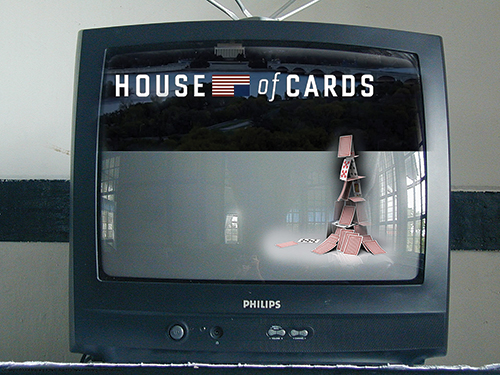Last weekend I was one of many who watched more episodes of Net-flix’s own series House of Cards than I probably should have. Netflix released the first season in its entirety, granting its 27 million U.S. subscribers access to all 13 episodes of the series on the same day.
The power of withholding data

Last weekend I was one of many who watched more episodes of Net-flix’s own series House of Cards than I probably should have. Netflix released the first season in its entirety, granting its 27 million U.S. subscribers access to all 13 episodes of the series on the same day.
I know a lot of people who stayed in to power through the full first season, while others are holding off until they make it through the last season of The West Wing, which was released in early January.
For more than a decade Netflix has collected data on the movie- and TV-watching habits of its subscribers, taking note of which series we watch and how long it takes us to complete them, which ones we choose to watch again and which ones we quit halfway through.
It’s through this method that the streaming giant has been able to revive older shows like Twin Peaks and The X-Files—the algorithms learn our behavior and tailor content based on what we’ve rated highly.
The company is in a powerful position when it comes to producing what could be a very successful TV series because it seemingly already knows what “we” like. Investing $100 million in a new TV series may not seem like a big deal if you figure that you already hold the keys to success.
Besides huge hype in the weeks prior to House of Cards’ release, by releasing all the episodes on a Friday Net-flix was guaranteed a captive audience over Super Bowl weekend. Netflix knows how many people sat down to watch however many episodes and how many days it took them to complete the series. The company is, however, not releasing the data. Instead, it’s relying on media and member critiques to reflect public reception.
For the more than 1 billion Facebook and half-a-billion Twitter users worldwide, data collection has been big business. Buying and selling access to what we post, share, like and retweet has been a huge source of income for these social media platforms over the last few years. The ability to collect data also gives companies the power to release it and, in doing so, reinforces the power exerted by social media.
What’s new is Netflix’s refusal to release the data. While there have often been loud disputes over Facebook changing its privacy settings and the company’s ability to collect data from its users, almost no one challenges Netflix’s collection of data concerning our TV-watching habits. This puts the company in an excellent position to tailor its future business ventures to them.
The lack of data has caused a minor outcry in the media. We have to speculate on House of Cards’ success, blindly guessing while reading reviews of who thought it was good and bad. Only Netflix knows if it was a worthwhile venture, because the real proof is in the numbers.
There’s a self-fulfilling prophecy about the constant release of data that reflects our social habits, and the lack of data forces us to ask: Do we actually like this show or are we just watching it because it seems as though everyone else is?
While large social media platforms have built their empires on data we willingly feed them each day, there’s a different power held by the company that refuses to feed it back to its users. Now, the power to withhold information has become just as important as a company’s ability to collect it.





